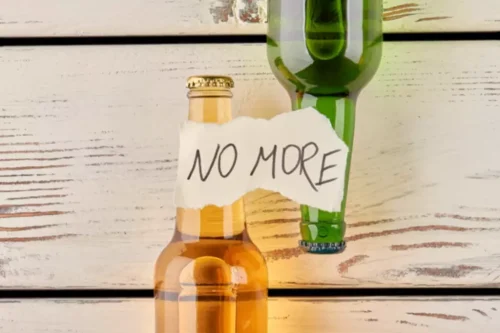
Additionally, seeking support from a therapist, counselor, or support group can provide valuable guidance and encouragement in developing self-control skills. For individuals on the path to recovery, implementing effective sobriety strategies is crucial for maintaining long-term sobriety. Building a strong support network and engaging in meaningful activities are key components of a successful recovery tips to stay sober journey. Many sober people I know also identify as Highly Sensitive People, who tend to be particularly attuned to other people’s emotions and energy levels. So be mindful of being glued to the news or your phone during these times, and aim to stay informed but not overloaded. Give yourself permission to unplug, take a break, and notice when you’re feeling triggered, especially on social media.
- This is a treatment that first prevents someone from using their substance of choice and then provides information about the harm of using.
- Support can also look like joining in-person and online support groups.
- Some individuals can do this on their own with community or peer support; however, others will require the help of providers through medically-supervised detoxification.
The Social Drinkers, Dry Drunks & Sober Alcoholics
No matter what style you fancy, there are plenty of ways to stay connected with sober support. Physical distance doesn’t https://ecosoberhouse.com/ have to mean complete separation. Many in the sober community rely on 12-step meetings to maintain their recovery.
What Can I Drink Instead of Alcohol?
As a survivor of childhood and adult trauma, I believe in this truth. Furthermore, every drug addict I’ve met has trauma stories. So my life experiences validate this understanding. These strategies have proven to be successful in my sober living.
Schedule Time, Not To-Dos

Strictly speaking, sobriety is the state of being sober—not being under the influence of alcohol or drugs. However, the word is often used in different ways in different contexts. Many 12-step programs suggest that sobriety means total abstinence, which means never using the substance again. Other definitions, however, focus on the process of recovery and coping habits that support health and wellness over the long term. Long-term recovery is possible with the right support.
- However, for me, God is the creator and savior.
- Many people who misuse alcohol or drugs have trouble dealing with anger.
- The process of recovery doesn’t have to be done alone.
- Addiction often creates problems at work up to and including job loss.
- By identifying these cues, individuals can develop personalized coping mechanisms to navigate through challenging moments and prevent relapse.
- You can also dedicate your time to online communities.

You may have celebrated milestones during your sobriety journey. Track your wins on a calendar or through a Sobriety app. Getting your body moving can be as simple as starting a morning or evening ritual of daily walks or as structured as signing up for an in-person HIIT class to hold yourself accountable. Your exercise routine can include going to a gym, but let’s face it — the gym isn’t for everyone.
People who are addicted to substances may require treatment in the form of medication, counseling, and in some cases, medical care. Treatment is typically long-term, and requires a lot of effort and commitment from the individual. Substance use disorders, such as alcohol or drug use, are medical conditions.
Social Drinker vs Addicted Drinker

What’s the Point of Staying Sober?



